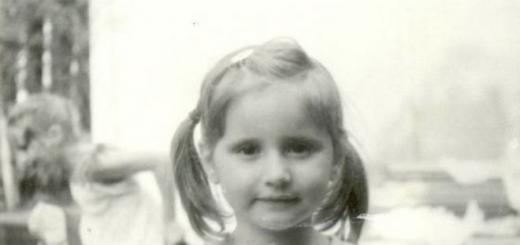Before moving on to the typology of conflicting personalities, we should consider the very concept of “conflict personality”. What characterizes a conflict personality? And what are the behavioral features of a conflict personality?
The concept of a conflict personality
A conflict personality is a person who initiates and produces an increased number of conflicts. The main character trait of such a person is, accordingly, his conflict, which is determined by the action of such psychological factors as temperament characteristics, level of aggressiveness, competence in communication, and emotional state. As well as a number of social factors, such as living and activity conditions, environment and social environment, general level of culture, etc.

Characteristics of a conflict personality
A person with conflict often reacts very violently to opinions or statements opposing him, talks a lot, and almost all conversations with such a person end in a showdown, and a banal conversation with him can develop into a heated argument and even a scandal. A conflict-ridden person looks for reasons for disputes in everything; he is attracted to all kinds of intrigues and gossip.
Very often such a person is characterized by pickiness, skepticism, aggressiveness, negativism, egocentrism and other individual qualities. Moreover, such characterological features of a conflict personality are most likely formed against the background of psychological trauma experienced in the past, the consequences of which entailed conflicting defensive behavioral forms and manifestations.
Types of conflicting personalities and their characteristics
Conflictologists identify 5 types of conflicting personalities and their behavior patterns:
uncontrollable type of conflict personality, conflict personality of conflict-free type, rigid type of conflict personality, conflict personality of ultra-precise type and conflict personality of demonstrative type.
Characteristics of a conflict personality of a rigid type
Suspicious. Straightforward and inflexible. Has high self-esteem. Constantly requires confirmation of one's own importance. Often does not take into account changes in situation and circumstances. A conflict-ridden personality of a rigid type has great difficulty accepting the point of view of others, regardless of their opinions.
Expressions of hostility on the part of others are perceived as an insult. Not critical of his actions. Painfully touchy, hypersensitive to imaginary or real manifestations of injustice.

Behavior of a conflict personality of a rigid type
A rigid type of conflict personality can be recognized among others by his inability to listen and listen to others, and this can be felt from the first minutes of a conversation with such a person. Understanding someone else's opinion and accepting the fact that it may be true for him is something out of the ordinary.
A conflict personality of a rigid type always says what is on his tongue, without thinking about how appropriate it is in a given situation. If you express a point of view opposite to his opinion, he is more likely to regard it as an insult or as a reason to quarrel. A very vindictive person who does not know how to monitor his own actions.
Uncontrollable type of conflict personality and its brief characteristics
Impulsive, lacks self-control. Such a conflict personality is characterized by poorly predictable behavior and often behaves defiantly and aggressively. May not pay attention to generally accepted norms of communication. The uncontrollable type of conflict personality is characterized by a high level of aspirations. Not self-critical.

He tends to blame others for his failures or troubles. Cannot plan activities competently and consistently implement plans. Such a conflicted personality has an underdeveloped ability to correlate his actions with goals and circumstances.
Behavior of a conflict personality of an uncontrollable type
An uncontrollable type of conflict personality can be defined by such behavioral characteristics as: uncontrolled aggressive behavior towards others, inflated self-esteem, impulsiveness, unpredictability of actions. Accordingly, in an organization or team, such a person is treated with caution, being wary of his aggression. Therefore, it is often isolated because it does not bring benefits to the overall group activity and does not support the group’s values and goals.
Characteristics of a high-precision conflict personality
He is meticulous about his work and responsibilities. At the same time, meticulously placing inflated demands on both himself and others. Oddly enough, the conflict personality of the hyper-precise type has increased anxiety and is overly sensitive to details.
Such a person tends to attach undue importance to the comments of others. And he can even break off relations with friends because of the perceived offense inflicted on him. He worries greatly about his mistakes and failures, sometimes paying with poor health (insomnia, headaches, neuroses, etc.). Restrained in external, especially emotional manifestations.
Behavior of a conflict personality of the ultra-precise type
The ultra-precise type of conflict personality can be immediately recognized by its picky behavior. He always tries to be precise, scrupulous, and tries to follow his own clearly established rules. He is extremely concerned that everything is always done perfectly, sometimes he even becomes a boring perfectionist. Very worried about not being able to get somewhere or not doing something, excessive punctuality, excessive sensitivity and suspicion.

Brief description of the conflict personality of the demonstrative type
The demonstrative type of conflict personality always strives to be the center of attention. Likes to make a good impression on others. Moreover, his attitude towards others is determined by how they treat him. Superficial conflicts are easy for such a person. He suffers demonstratively and admires his resilience. This conflict personality is characterized by a high level of aspirations and an inability to self-criticize.
A conflict personality of the demonstrative type, unlike others, easily and well adapts to various situations and feels comfortable in conflict situations. Rational behavior is poorly expressed. Activity planning is carried out situationally and poorly implemented. Basically avoids painstaking and systematic work.
Behavior of a conflict personality of a demonstrative type
Conflict is their element; they do not hesitate to express themselves in it, without particularly paying attention to the tone of their speech or its appropriateness. They can make a whole epic out of a minor dispute. In a serious conflict they hold on tightly and courageously. The mood of a demonstrative type of conflict personality is determined by how their opponent treats the conflict itself.
Demonstrative types of conflict personalities never admit even to themselves that they are often the source of a dispute; they always find someone to blame. Such people are constantly surrounded by the public, they love popularity and attention, this increases their self-esteem and fuels their vanity. They never sit in one place for a long time and are always in a hurry to get somewhere. Such a person is impulsive and lacks self-control. Characterized by poorly predictable behavior, often behaves defiantly and aggressively. May not pay attention to generally accepted norms of communication.
And finally, a conflict-free personality of the conflict-free type is characterized by
Unstable assessment of one's beliefs and opinions. Internally contradictory. Has easy suggestibility. Depends on the opinions of others. There is some inconsistency in behavior. Focuses on immediate success in situations. Doesn't see the future well enough. A conflict-free personality is overly eager to compromise. Doesn't have enough willpower. Often he does not even think about the causes and consequences of the actions of both himself and those around him.
Behavior of a conflict-free personality
It differs from others in that at the beginning of any conflict situation it tries to avoid it or shift its responsibility for its beginning to someone else. This type of conflict personality is easily suggestible; it is not difficult to force him to change his mind, since he strongly takes into account the opinions of others. He makes his decisions without looking at their future prospects, without thinking about the consequences.
Conflict personality - demonstrative type .
Wants to be the center of attention. Likes to look good in the eyes of others. His attitude towards people is determined by how they treat him. He finds it easy to deal with superficial conflicts and admires his suffering and resilience. Adapts well to different situations. Rational behavior is poorly expressed. There is emotional behavior. Planning of one's activities is carried out situationally and poorly implements it. Avoids painstaking systematic work. Does not shy away from conflicts, feels good in situations of conflict interaction. Often turns out to be a source of conflict, but does not consider himself as such.
Conflict personality - rigid type .
Suspicious. Has high self-esteem. Confirmation of your own importance is constantly required. Often does not take into account changes in situation and circumstances. Straightforward and inflexible. With great difficulty he accepts the point of view of others and does not really take their opinions into account. Expressions of respect from others are taken for granted. An expression of hostility on the part of others is perceived by him as an insult. Little critical of his actions. Painfully touchy, hypersensitive to imaginary or real injustices.
Conflict personality - uncontrollable type .
Impulsive, lacks self-control. The behavior of such a number is difficult to predict. Behaves defiantly and aggressively. Often in the heat of the moment does not pay attention to generally accepted norms. Characterized by a high level of aspirations. Not self-critical. He tends to blame others for many failures and troubles. Cannot properly plan his activities or consistently implement plans. The ability to correlate one’s actions with goals and circumstances is not sufficiently developed. From past experiences (even bitter ones) little benefit is gained for the future.
Conflict personality - highly accurate type .
He is meticulous about his work. Places higher demands on himself. He makes high demands on those around him, and does it in such a way that the people he works with feel like they are picking on him. Has increased anxiety. Overly sensitive to details. Tends to attach undue importance to the comments of others. Sometimes he suddenly breaks off relations with friends and acquaintances because it seems to him that he was offended. He suffers from himself, experiences his own mistakes and failures, sometimes even paying for them with illnesses (insomnia, headaches, etc.). Restrained in external, especially emotional manifestations. Doesn't feel very good about real relationships in the group.
A conflict personality is a conflict-free type.
Unstable in assessments and opinions. Has easy suggestibility. Internally contradictory. There is some inconsistency in behavior. Focuses on immediate success in situations. Doesn't see the future well enough. Depends on the opinions of others, especially leaders. Excessively strives for compromise. Doesn't have enough willpower. Does not think deeply about the consequences of his actions and the reasons for the actions of others
Types of Conflict Resolution
Persuasion, suggestion
An attempt to reconcile irreconcilable interests
The “game” method is to attract more influential patrons to your side
Advantages - saving time
Disadvantages - the conflict is not resolved, but only externally suppressed
Partnership type - conflict resolution through the use of constructive methods.
Main features:
constructive interaction between the leader and conflicting parties.
perception of the opposing side's arguments
willingness to compromise, mutual search for solutions; development of mutually acceptable alternatives
the desire to combine personal and organizational factors
perception as a normal factor of activity
Advantages - closer to the real solution to the problem, allows you to find unifying factors, satisfy the interests of the parties
The influence of irrational views on conflicts.
Albert Ellis came to the conclusion that emotion is not a simple immediate reaction to a situation. An emotional reaction always arises as a response not so much to the actual event, but to how we interpret it. This fundamental tenet of cognitive therapy is illustrated by the famous ABC formula.
A ( activating event ) - activating event: a situation, a stimulus that determines the response process.
IN ( beliefs ) - beliefs, expectations, attitudes, beliefs, ideas about the situation, interpretations and conclusions.
WITH ( consequences ) - consequences: emotions, feelings, behavior.
Our emotions will depend not so much on real events, but on “B” - our thoughts about what is happening.
Ellis called thinking that triggers destructive experiences clogging, or destructive. He described four types of the most common patterns(patterns of) destructive thinking. When a person is very upset or commits unreasonable things, you can almost always identify one or more of these patterns: blaming people or yourself, inflating demands, instilling fear, devaluing the importance of what is happening.
Blaming people or yourself , or, as they sometimes say when popularizing psychological knowledge, “accusatory thoughts”: “It’s all because of her... If it weren’t for him... All because he’s a bad friend... It’s all my fault... I have no forgiveness..."
Excessive demands . This pattern of thinking is sometimes called “commitment thoughts.” Instead of describing his expectations, a person makes higher demands on himself and others: “I should have been more decisive... I should have said the wrong thing... I was obliged to prevent this...” or, “He was obliged to keep a secret... He should be more careful, more attentive, kinder..."
Fear-mongering, exaggeration of importance . “What if... It will be terrible if... I just hate it when... It drives me crazy when... It’s unbearable that...”
Devaluation of the importance of what is happening, self-justification . "So what? I don’t care... I don’t care... Who cares..."
The first three destructive thinking patterns cause negative, destructive experiences.
The fourth - self-justification - blocks the release of stress, encouraging you to ignore its presence. This style of behavior turns out to be especially destructive for psychological health and relationships with significant people, since destructive experiences that relieve stress do not find a way out, and other methods of release are not used.
Causes of human irrationality according to Ellis.
Virtually all people, even very intelligent and educated people, are susceptible to basic irrational ideas and self-deprecation.
Virtually all irrational ideas (absolutist "shoulds" and "musts") can be found in almost all social and cultural groups studied by history and anthropology.
Many irrational behaviors go against what we are taught by our parents, peers, and the media. for example, the habit of postponing important things until later, lack of self-discipline,
People - even very smart and educated ones - often accept new irrational ideas after they have gotten rid of old ones.
People who work hard to combat irrational behavior often fall prey to that very behavior. Atheists and agnostics exhibit fanaticism and worship of absolutist philosophy, and deeply religious people act immorally.
Understanding irrational thoughts, feelings and actions only partially helps to change them. For example, people may be aware that drinking large quantities of alcohol is very harmful, but this knowledge will not necessarily help them abstain from binge drinking.
People often return to irrational habits and behavioral patterns, even if they have done a lot to overcome them.
People often find it easier to learn self-deprecating behavior than self-enhancing behavior. So, it is easier for them to overeat than to follow a reasonable diet.
People often mislead themselves into thinking that certain negative events (such as divorce, stress, or some kind of misfortune) cannot happen to them.
According to Ellis, irrational views can be reduced to 3 main absolutist shoulds (or core beliefs):
I have (obligation) to do everything well/get the approval of significant others, if this doesn’t happen, then it’s a nightmare, horror, I won’t survive it.
You should- treat me fairly and respectfully if you don't treat me that way. You- are bad and I can't stand you and your crappy behavior.
Life should (God, fate) be the way I want it to be and when something goes wrong, it’s a nightmare and I can’t live in this terrible unfair world.
Cognitive distortion/irrational views according to Ellis.
All or nothing thinking.“If I fail at least some important thing - and I must not fail - I am a complete loser and a completely unworthy person of love!”
Jumping to conclusions and negative, illogical conclusions."Because they saw me fail miserably - and I always have to be on top - they will think of me as a stupid worm."
Predicting the future."Since they laugh at my failure - and I always have to be on top - they will always despise me."
Focusing on the negative.“I can’t stand the fact that everything is not going the way it should go, and I don’t see anything good in my life.”
Misunderstanding of the positive.“When they praise me, they just feel sorry for me and forget all the stupid things that I absolutely should not have done.”
Ever and never.“The living conditions should be good, but they are actually terrible and intolerable, and it will always be like that, and I will never be happy.”
Understatement.“The good shots in this game were random and didn’t matter. But the bad ones - which I had no right to do - were simply terrible and completely unforgivable."
Emotional reasoning.“Because I performed simply poorly, in a way that I absolutely shouldn’t have, I feel like a complete fool, and this proves that I really am no good for hell!”
Labeling and overgeneralization.“I have no right to fail important work, and since I did this, I am a complete failure and a lost person!”
Taking it personally.“Because I behave much worse than I should, and they laugh, I’m sure they’re only laughing at me, and it’s terrible!”
False "I".“When I’m not as good as I should be and they keep accepting me and praising me, I feel like I’m a fake and will soon lose my mask and show my creepy face.”
Perfectionism.“I understand that I did this task well, but I have to do this kind of work perfectly, and therefore I am a worthless person.”
Cognitive conceptualization by Judith Beck.
According to this concept, people's emotions and behavior depend on their perception of various life circumstances.
Automatic thoughts (can be caught, conscious)
Intermediate Beliefs
Deep Beliefs (Unconscious)
Automatic thoughts - evaluative thoughts are fleeting, not the result of reflection, inference and not necessarily supported by evidence. They appear on their own, short, fragmentary.
Intermediate Beliefs - cannot be clearly expressed in words, include relationship, rules(I must), assumptions(if I work hard, maybe I will achieve it..)
Deep beliefs are attitudes that are so deep and fundamental that people often cannot clearly express them or even simply realize them.
Cognitive errors and dysfunctional beliefs according to Aaron Beck
|
Cognitive error |
Belief |
|
|
Generalization |
If something is true in one case, it is true in all other more or less similar cases |
|
|
Selective abstraction |
Only failures, defeats, deprivations, etc. matter. You need to judge yourself by your mistakes, weaknesses, etc. |
|
|
Excessive personal responsibility |
I am to blame for all the failures, troubles, etc. |
|
|
Appeal to the past when predicting the future |
If something was true before, it will always be true |
|
|
Personalization |
I am the center of everyone's attention - especially my mistakes and miscalculations. I'm the cause of all the trouble |
|
|
"Catastrophization" |
Always expect bad things. Only bad things can happen to you |
|
|
Dichotomy of thinking |
There are only two categories for evaluating events, people, actions (black-white, good-bad) |
Conflict situations are common phenomena in everyday life, which sometimes cannot be avoided. The causes of conflicts are different, both objective and subjective. Psychologists have identified the main types of conflicting personalities, classifying the ways in which conflicts arise, their nature and course.
In the middle of the 20th century, the psychology of conflict emerged as an independent direction. The basis of this direction was two opposing points of view on the conflict, which arose in ancient times:
- The teachings of Plato and Aristotle, they view conflict exclusively as a negative phenomenon, which hinders the development of individuals and generations.
- The idea of Heraclitus is opposite in its meaning: he believes that the clash of opinions and interests acts as a source of development.
In modern psychology, these opinions find common ground. In the works of domestic psychologists, conflict is considered as a process that has both constructive and destructive functions at different stages of development and for different participants.
general description
The purpose of the article is to consider the types of conflicting personalities that generate and provoke controversial situations, and to provide recommendations for interacting with them.
What is conflict? These are personality traits that determine the likelihood of a person entering into a dispute situation, regardless of the objective reason.
The simplest typology of conflicting personalities describes conflicting people and the situations they provoke:
Situational conflict personalities. For people of this type, conflict is not a fundamental personality trait, but the consequences of a specific situation when there is no other choice but to enter into a conflictual relationship - these are failures in life, troubles, disappointments, which increase the level of conflict as a means of internal defense. A situational-conflict personality is able to adequately assess the situation, control himself and hear those around him. Their level of conflict decreases when circumstances normalize.
For permanent-conflict personalities, conflict is a property of their character that manifests itself in the outside world. Such people’s behavior provokes disputes and clashes and spoils relationships. They are called “conflict personality”.
The level of their conflict is determined by the following parameters:
- psychological (temperament, tendency to aggression, mental stability, characteristics of the emotional state, attitudes and values, attitude towards the interlocutor);
- social (living conditions, characteristics of professional activity, cultural level, social environment).
In psychology, the following types of conflicting personalities are distinguished:

Demonstrative type
This type is characterized by a desire to be the center of attention; it is important to him what others think of him, how he looks in their eyes. How he treats others is determined by who he is to them. If someone admires him, this person is worthy of attention; if not, the rating drops. People of the demonstrative type are emotional and often act without thinking; planning is not their strong point.. They are prone to variety in their work; they cope poorly with painstaking work that requires focusing on details.
The demonstrative personality type is adaptive, easily adapts to new situations, and tends not to dwell on the past. Such people do not ignore conflict situations - participating in the process of sorting out relationships is a comfortable existence for them! At the same time, they do not consider themselves instigators and instigators of conflicts. Any opportunity to demonstrate their own importance is important to them.
Rigid type
The rigid type is characterized by thoroughness in everything he does. Before such a person draws conclusions, he will think about the problem and listen to his opponents, while on everything he has his own opinion, which does not require evidence. Such people have a high opinion of themselves - if they do not agree with him, they perceive it as a personal insult. They are not flexible, difficult to adapt to changes, and conservative.
A conflict-ridden personality of the rigid type is overly straightforward, which tends to cause pain and offense to loved ones, and to be the first to reconcile is equated to humiliation of one’s own dignity. People are often suspected of insincerity, and this creates additional problems in relationships. However, no one can handle analytical work better than this type - in any dispute or interaction, he will get the role of leading analyst.

Ultra-precise type
Most anxious people belong to this type - they are concerned that they may not meet the requirements of management, colleagues, and loved ones. These people may feel ashamed of others, they are worried about the “imperfectness” of the world. At the same time, emotions are restrained - not every person will understand what is hidden behind the external calm of the ultra-precise type. Their main advantage is their attention to detail, meticulousness in their work, “check seven times, cut once” - this is about them. Due to perfectionism, this type of conflict personality is more often susceptible to psychosomatic diseases than others.
Unmanaged type
It is difficult to predict the behavior of this personality type. They are impulsive and self-control is difficult. Inconsistent - the point of view changes several times during the dialogue. They can act aggressively, ignoring generally accepted norms of behavior in society. It is important that their opinion is valued. If they turn out to be wrong, they prefer to blame others. Planning your actions is a difficult task. Such a person acts according to the situation and intuitively.
Non-conflict type:
You rarely meet such people in a dispute - they do not like to be in the center of a showdown. And if they find themselves drawn into a controversial situation, they prefer to remain on the sidelines, watching the unfolding events from afar. They wait because the opinion of the majority is important to them; people of the conflict-free type are more comfortable following the crowd rather than defending their own opinion or the opinion of a minority. Inconsistent, poor perspective. However, no one else can cope better with finding a compromise in a dispute.
What to do if you are faced with a conflict personality?
When interacting with conflicting individuals, psychologists recommend adhering to the following basic principles:
- you need to understand that a conflicting person, through his actions, satisfies the needs and wants associated with personal losses and failures;
- manage your own emotions and avoid rudeness or insults;
- give the conflicted person the opportunity to express his emotions;
- Don’t take this person’s unpleasant words or misbehavior personally;
- remain calm and show genuine interest.

Basic principles of behavior
If you are familiar with the typology of conflicting personalities, you have knowledge about the specifics of thinking and perception of conflicting people, then it will be much easier to act in a conflict situation:
- For the demonstrative type, it is important to show that you admire him, give him a compliment or two, and listen carefully. Voice your point of view in such a way that you get the impression that this is his idea, and you only support it.
- For the rigid type, a depth of understanding of the problem is important - therefore, enter into dialogue with such people only armed with deep knowledge about the essence of the issue being discussed. In a conversation, pay attention to existing stereotypes - “this is how it is,” “this is what our ancestors used,” “it has been tested for centuries.” Be sincere and do not try to deceive - then it will be almost impossible to prove the purity of your thoughts.
- In a dispute with a person of the ultra-precise type, first of all, it is important
Send your good work in the knowledge base is simple. Use the form below
Students, graduate students, young scientists who use the knowledge base in their studies and work will be very grateful to you.
Posted on http://www.allbest.ru
Introduction
Quite recently, about 50 years ago, conflictology appeared at the intersections of many sciences, and primarily two - psychology and sociology. Of course, it cannot be said that this science did not exist before, but conflictology appeared as an independent phenomenon only in the 50s of the 20th century and was initially called “sociology of conflict.” This name appeared in connection with the works of A. Coser - “Functions of Social Conflicts” and R. Dahrendorf - “Social Classes and Class Conflicts in Industrial Society.” Further, thanks to the research of D. Rapoport, M. Sheriff, R. Doz, D. Scott and others, the so-called “psychology of conflict” is being formed. In the 70s, there was a need for conflict management practices and psychological training aimed at teaching behavior in conflict interactions. The PIR (Gradual and Reciprocal Initiatives to Reduce Tension) methodology emerges, which is necessary for resolving international conflicts.
In the studies of D. Scott, S. and G. Bower, G. Kelman, conflict resolution techniques occupy a special place, and in the USA, when developing technologies for negotiations with the participation of an intermediary, even educational institutions for training such specialists are emerging. At this time, the Harvard method of “principled negotiations” by W. Urey and R. Fisher became famous.
Since the main demand and interest is precisely the conflict: the reasons for its occurrence, types, possible ways of resolution, it becomes the central topic of conflictology. Often, in the past, conflict was viewed as an advantage from the outside, that is, from the point of view of a social group or conflict situation. However, today this is not what is becoming more and more important, because not everyone wants and can follow conflict resolution techniques. Every day, more and more so-called conflicting personalities appear in society, which clearly stand out in the group. And psychology and conflictology are faced with the task of understanding what conflicting personalities are, what are the reasons for their formation and whether they can adapt in society.
conflict conflict personality inferiority
1. Who is called a conflict personality?
To further describe conflicting personalities, it is necessary to understand the terminology. Conflict (from Latin conflictus) - This
1) A state of a person’s dissatisfaction with any circumstances of his life, associated with the presence of conflicting interests, aspirations, and needs that give rise to affects and stress.
2) An intractable contradiction that arises between people and is caused by the incompatibility of their views, interests, goals, and needs. These definitions vary by category. The first is the definition of internal conflict, and the second is the definition of interpersonal conflict. However, it is known that this is not the broadest definition of conflict, since there are many other subtypes. But they are all similar in one thing: conflict is the ultimate aggravation of contradictions.
What can we say about personality? V.S. Merlin gives the following definition: a holistic, stable, individually unique and socially typical organization of human consciousness, which determines the active creative nature of his activity and has social value. A conflict personality itself presupposes the presence of some contradictions in the consciousness or subconscious of a person, which actively or passively influence the nature of his behavior.
Before typing a personality, it is necessary to understand the origins and reasons for its formation.
2. Formation of a conflict personality
Since the role of conflict in the formation and study of personality is very great, many psychologists considered it necessary, one way or another, to reflect their attitude to conflict in their works. S. Freud was the first to propose considering conflict as an intrapsychic phenomenon. He argued that external conflict is the result of the contradictory nature of man himself. In his writings, he described the conflict mainly between “I” and “It”. “It” is an instinct, an unconscious component of a person. “It” is a person’s biological needs that must be satisfied all the time, otherwise a conflict with the “I” is inevitable. “I” is the component that controls conscious actions. But according to Freud’s theory, there is also a third component - the “Super-Ego”, which is also called the “Ideal Self”. Then, being between two fires, the “I” suffers from all three threats: the external world, the severity of the “Super-I” and the libido of the “It”. The constant clash and contradiction of the three “I” in a person is a dynamic internal conflict, which is reflected in the external behavior of a person.
K. Jung in his works “The Conflict of the Child’s Soul” argued that further human neurosis and the severity of adaptation to people are formed in childhood. He emphasized the importance of teaching a child understanding and the importance of thinking for resolving internal mental conflicts. And any deception or neglect on the part of adults can further lead the child to incorrect conclusions, which subsequently make it difficult to perceive himself.
Karen Horney also emphasized the importance of personality formation in childhood. She also coined the term “basal anxiety” - a pervasive feeling of loneliness and isolation in a hostile world. This condition occurs if the child’s need for security has not been fully satisfied. As a result, “basic anxiety” becomes the foundation for the emergence of a conflict personality. After all, a neurotic person requires more attention to himself, his need for love and recognition is much higher than that of others. Such a person reacts more aggressively if something does not happen as he would like. Thus, a conflict personality first of all seeks evidence of its significance according to the theory of Karen Horney.
Alfred Adler's theory of inferiority complex is very famous. During the first five years of life, a person is under the influence of unfavorable factors that form an inferiority complex in him. Further, conflicts arise in connection with attempts to compensate for the complex. Adler highlights 3 type of compensation:
· Adequate compensation , coincidence of superiority with the content of social interests (creativity, music, sports, etc.)
· Overcompensation , there is an accumulation, hypertrophied development of one of the abilities, predominantly of an egoistic nature.
· Imaginary compensation , the complex is compensated by illness or other factors beyond a person’s control.
Thus, a person becomes a hostage to his complexes and is forced to express himself, sometimes actively and positively, and sometimes aggressively and negatively.
These are just a few of the many theories about the conflict that lies within humans. There are many other theories that determine the causes of conflicts, but not all of them are related to personality conflict.
3. Types of conflicting personalities
There are many classifications of types of conflicting personalities: according to the reasons for their formation, according to the degree of manifestation of negative qualities, according to behavioral patterns. Such classifications are extremely important. Not only psychologists are interested in the typology of conflicting personalities. It is extremely necessary for people, corporate managers, working in teams or people in the same creative or project group to know the main signs and ways to avoid conflict.
We will involve the research of domestic psychologists (V.P. Zakharov, F.M. Borodkin, Yu.A. Simonenko, N.M. Koryak). Today, there are 6 main types of conflicting personalities:
Demonstrative type:
He always wants to be the best in everything. Loves to be the center of attention. People are divided into those who treat him well and the rest, “insignificant”. Emotional, he does everything according to the situation and rarely plans his activities. Quickly adapts to different situations, prone to superficial conflicts. Never considers himself a source of conflict, even if he is.
Rigid type:
“Rigid” is an inflexible, unplastic personality with high self-esteem; she is characterized by ambition and unceremoniousness. Most of these people are self-centered people who do not want to listen or take into account the opinions of others. Behavior is unceremonious, straightforward, rude. They have a hard time adapting to the situation because they cannot catch changes in time. At the same time, they are overly suspicious of the people around them. They take praise for granted, but any criticism is perceived as an insult. They have an inflated sense of justice, but do not always try it on themselves. behavior conflict personality
Unmanaged type:
People are impulsive, inert, unpredictable. Their main problem is lack of self-control. The behavior is most often defiant and aggressive. They also have a hard time withstanding criticism, but unlike the rigid type, they tend to blame others for their own failures. They gain little experience from life; it is difficult for them to correlate their actions and actions with the circumstances. It is difficult for them to implement plans in life.
Ultra-precise type:
This person is demanding of everything and everyone. Moreover, it looks as if he is finding fault. Distrustful of others, suspicious, overly anxious.
Sensitive to evaluation from superiors, well understands real relationships in the group. Sometimes he stops communicating with friends because he feels that he has been offended. As a result, illnesses arise: headaches, insomnia. However, outwardly he will never show a palette of emotions.
Non-conflict type:
This person is easily suggestible; it is difficult for him to form his own opinion. Because of this, he can be inconsistent. Heavily depends on other people's opinions and focuses on immediate success. Not having sufficient willpower, he always strives for a compromise. Rarely analyzes his actions and the actions of others.
Rationalist:
Calculating, ready to enter into conflict at any moment. Works unquestioningly only as long as the boss is in authority. As soon as progress is made in changing the leader, the rationalist will be the first to betray him. In the end, he tries to rationalize everything in his favor.
These are the six main types of conflicting personalities that are identified today. However, there are many more of them. Different psychologists offer different classifications. Some offer us “harmful”, “difficult” ones, which also occur in modern society. It is necessary to know how to respond to the behavior of a conflicting individual or at least minimize the consequences of the conflict. He who is aware is armed.
Rude- the “tank” does not pay attention to anyone who gets in its way, it goes straight ahead. He doesn't see or hear what you say to him. The best way to deal with him is to stay out of his sight at all. If this does happen, you should be mentally prepared for this meeting. The main thing is to decide what you can do and what you are not going to do, despite the pressure. In the process of communication, you should be restrained, both externally and internally. It is better to listen to him first, let him blow off steam and try to attract his attention. If you want to say something, you need to do it quickly and clearly, since attention is not the most durable trait of a tank. Try to end the conversation as quickly as possible.
There is also a type "rude loudmouth" who is accustomed to raising his voice in any situation that worries him. The most important thing is to try to maintain a calm pace of conversation, and not to become “raised in tone.” It is advisable to show sympathy and understanding as much as possible in order to calm the “screamer”.
Very similar to the previous type "grenade"- in himself he gives the impression of a peaceful and calm person, but at some point, completely unexpectedly, he can break down. This happens at the moment when the feeling of control over the situation leaves him and a feeling of helplessness arises. Let it explode. After some time, assuring him that the situation can be corrected, you will see how he begins to calm down.
"Habitual Screamer"- the name itself speaks about the personality type. This person does not know how to solve problems in any other way, he is nervous, shouts, proves something. Such people outwardly look very aggressive, but at the same time they are not dangerous, so you should perceive the scream as a drawback and begin to perceive what he says, and not how he does it.
One of the most annoying types is the type "know-it-all" He constantly belittles the significance of what you say, interrupts and criticizes. He tries in every possible way to elevate himself, to show his superiority and competence. A difficult but effective way to agree with him on everything, or at least take his opinion into account. There is no use arguing with him, much less asking him for anything if he says he is busy.
"Pessimist" also creates a lot of difficulties. If he criticizes, then you should take his comments seriously; they may turn out to be constructive. It is necessary to try to minimize the shortcomings that he spoke about and thank him so that he feels useful. Perhaps then he will be your ally, and not an oppressive factor.
It is believed that the type "passive-aggressive" is one of the most difficult. He does not do anything openly, does not criticize or resist. However, if he wants to achieve something, he tries to do it with the help of other people. But he is so secretive and cautious that it is difficult to bring him into the open. The work may not be completed on time, not completely, or incorrectly. At the same time, there are always many “excuses”: I didn’t know, I forgot, it didn’t work out. Passive-aggressive people sometimes really want to seem helpful and offer their help in every possible way. But in reality he is not as he says. It is difficult for him to complete the tasks assigned to him. Don't get upset or take it personally. After all, your emotions are what he seeks. If you want this person to be useful to you, you need to make sure that he writes down everything you say to him.
It is also worth describing to him the consequences of failure to complete the task, which will affect him. At the same time, you will still have to monitor the progress of the work. The main thing is not to make any claims until completion. Otherwise, you risk getting caught in an intrigue that he will skillfully prepare. He is strong as long as he remains undetected. As soon as you start talking to him directly, in the presence of others, he will most likely become confused.
"Super flexible" The type is similar to the passive-aggressive one, also agrees with everything. He will actively offer his help, but in the end he will accomplish almost nothing. At the same time, he will believe that he sincerely wanted to do everything, but his impulse was not appreciated. He wants to please everyone, tries to look useful. And in the end, he accumulates so many obligations that he cannot cope with them. The person is soft and does not know how to say “no.” Just like with passive-aggressive, deadlines need to be set and clarified. The main thing is to create an emotionally favorable atmosphere so that he can speak more objectively about his capabilities.
Several more types of conflicting personalities will complement the existing list: « Sniper» , « Leech», « Prosecutor» And « Complainant».
« Snipers» burst into our lives with witticisms, barbs and ridicule. They seek to cause trouble using intrigue, gossip, and fraud. This is often due to a lack of authority that would allow open action. How to behave with him? You need to understand the object and determine the reasons for your behavior. And, showing that you are above this, calmly respond to his comments. In this case, the best way is a direct attack. Demand that he explain what he means in this or that case. However, be careful, if clarification does not happen, then there is a possibility that he will lie low and wait for an opportunity to take revenge.
« Leech» does not accuse anyone of anything, does not insult or is rude. But nevertheless, after communicating with him, your mood may drop, you may feel tired, lethargic, and probably get a headache. The only thing you can do, perhaps, is to say at the end of the conversation how you feel. Let him talk about his impressions. Perhaps you will be able to jointly understand what affects your condition.
« Prosecutor» looks like a “know-it-all” and a “sniper” at the same time. He criticizes everyone all the time: colleagues, friends, doctors, the government, neighbors... Every time he enthusiastically comes up with new facts. If you want to interrupt him, you will also fall under a barrage of irritation. He wants to speak out and be heard, so give him this opportunity. Try to learn not to pay attention to his fiery speeches.
Usually « complainants» There are two types: realistic and paranoid. The latter constantly complain about non-existent circumstances. The words “always” or “never” are often used in speech. They describe failures colorfully and want to be listened to in a calm environment. There is no need to prove to them that they are wrong. It's better to rephrase everything in your own words and let them know that their feelings are noticed. It is better to listen first, and then try to return the meaning of your own importance. Then it is better to end the conversation or change the topic.
conclusions
How many people, so many personalities. Every psychologist knows that without conflicts, human development, personality, is impossible. Each of us develops a huge number of shortcomings, ideas, aspirations, mistakes, and behavior patterns throughout our lives. But in the end, in order to be in relative harmony with others, you should learn to come to a compromise within yourself and on the basis of interpersonal relationships.
Today, there are many methods for assessing the type of personality conflict and self-assessment of conflict. Some associate conflict behavior as a consequence of upbringing. Later, a theory about temperament appears, now the human nervous system speaks about conflict. A lot of techniques have been developed to “neutralize” a conflict personality, but not much emphasis is placed on helping a person realize that he is annoying others; they rarely try to help him.
Psychologists and psychotherapists can only help if a person turns to them, therefore, it seems to me, it is important to “test” the team for the presence of conflicting personalities. This will help not only those around you, but also the individual himself.
Bibliography
1) Emelyanov S.M. Workshop on conflict management. M:Peter, 2001
2) Grishina N.V. Psychology of conflict. M:Peter, 2001
3) Nemov R.S. Psychology. M:Moscow, 2000
4) Conflict (psychology) - http//ru.wikipedia.org/Conflict_(psychology)
5) Types of conflicting personalities - article, http//psylist.net
Posted on Allbest.ru
...Similar documents
The concept of compensation for feelings of inferiority in Adler's theory of personality. The role of unconscious fictions and conscious life experience in the formation of personality in the scientist’s theory. Analysis of family constellation as a path of self-knowledge and self-improvement of the individual.
course work, added 05/25/2014
Conflict as a type of stress, the causes of its occurrence. Conflict personality in difficult situations. The main types of conflicting personalities and their characteristics. Behavioral types of strategies used by people involved in conflict situations.
abstract, added 03/23/2011
The concept of compensation and feelings of inferiority in A. Adler’s theory of personality. Overcoming the inferiority complex and developing a life style. Principles of Adlerian psychotherapy. Analysis of family constellation as a way of personal self-improvement.
test, added 06/02/2010
The concept of conflict and conflict personality. Basic types of conflicts and conflicting personalities. Behavior with a conflict personality, study of her behavior. Research on physiological characteristics, personality traits and behavior in conflict.
test, added 06/09/2010
The essence and main features of the personality inferiority complex. History of origin, general idea, causes of personality inferiority complex. The relationship between the inferiority complex and the superiority complex. Formation of an inferiority complex.
course work, added 10/11/2010
Essence, typology, main features of the conflict and the reasons for its occurrence. Classification and characteristics of conflicting personality types. The main behavioral types of strategies that are used by people involved in conflict and the rules for resolving them.
abstract, added 04/17/2009
The concept of personality conflict and the identification of their main types. Features of the classification of personality types and ways of communicating with people of these categories. The manager's solution to the problem of conflict in the team and neutralization of their negative impacts.
test, added 07/28/2010
Definition and essence of conflict, its main types. Factors contributing to the emergence and maintenance of conflict relationships in a team. Typology of conflicting personalities. Prevention and use of conflicts. Conflict management.
abstract, added 02/05/2012
The beginning of A. Adler's scientific path. Interest in psychotherapy and acquaintance with S. Freud. A. Adler's individual theory of personality. The main works of A. Adler. The idea of fictitious finalism. Options and ways of personality development. The desire to preserve one's individuality.
abstract, added 03/03/2016
Conflict and conflict situation. Forms and methods of resolving a conflict situation. Periods and stages of conflict dynamics. Methods for overcoming a conflict situation. Strategies for behavior in conflict. Factors preventing the emergence and development of conflict.
The definitions of “conflict person” and “non-conflict person” have become common and commonly used. But what is hidden behind these worn-out words? Is conflict a mental illness or bad upbringing? Why do people become conflicted? What are the types of conflicting personalities? How to coexist with them?
In psychology, there is a scientific term - HCP (high conflict personality), which translates as High Conflict Personality (HCP). The term was coined by Bill Eddy, one of the leading experts on conflicted personalities in family law, a lawyer, mediator, psychotherapist, and author of best-selling books on the topic of conflicted personalities. Today we will get acquainted with his understanding of the problem of ON, as well as the types of conflicting personalities and how to behave with them.
Is conflict a diagnosis?
Bill Eddy argues that conflict is not a mental illness. “When I created the term ON, my intention was not to make it a diagnosis such as a personality disorder. I just wanted to help people build professional and personal relationships with High Conflict Personalities. I recommend that you develop a working theory for yourself that this or that person is ON, and not share this information with that person or with others. But at the same time, use methods for building relationships with the Grand Duchy of Lithuania.”
So who can be classified as ON, and what are the methods for building relationships with them?
Types of conflicting personalities
Bill Eddy believes that fear makes people conflicted. And this fear comes in four types:
- fear of being ignored, not noticed,
- fear of being humiliated,
- fear of being abandoned,
- fear of being under pressure.
Fear of not being noticed. “Some people feel like they will just disappear if they stop being the center of attention. They are afraid that they will not only become invisible, but that they will cease to exist. And this fuels their constant need for attention from others, which they seek at any cost.”
Fear of being humiliated. “The fear of being humiliated makes some people behave in such a way as to look more important and better than all mortals. They need to be a step above you. It is unacceptable for them to admit that they made a mistake, that it was their fault that something went wrong.”
Fear of being abandoned. “People obsessed with this fear live on a roller coaster. Either they are affectionate, gentle and caring, then they instantly become angry, offended and even cruel. For them, being abandoned is tantamount to death. And so they fight desperately not to die. They do everything to keep you. Unfortunately, the way they cling to the relationship is what causes the object of their love to leave them. They create a self-fulfilling prophecy.”
Fear of being under pressure. “The slogan of such people could be the following statement: “I will do this to you so that you don’t do this to me.” Those who are afraid of falling under the influence of others try to dominate themselves. For them, life is the survival of the fittest, and there are no other rules.”
But the main thing is that the primary source of inappropriate behavior of all types of conflicting personalities is fear. Inside every villain is a scared child. Don't forget about it :)
How to recognize ON?
According to Bill Eddy, you are most likely to encounter ON when:
- "problem" is not a problem. That is, a person makes the center of a dispute an issue that is not key to solving the problem. He intuitively avoids key issues because what is important to him is not solving the problem, but preserving the conflict.
- a person has an all-or-nothing mentality. We all experience this distorted thinking from time to time. But ONs constantly see the world in black and white. For them, a person is either right or wrong, while they themselves are always in the “right” camp. Even worse, their best friend could be instantly transported to a hostile camp.
- a person blames others. ON tend to blame everyone but themselves. It is unacceptable for them to realize that they may be partially responsible for the situation that has arisen.
How to build a relationship with ON?
Whatever type of conflict personality a person belongs to, there are universal techniques for effective communication with him. Let's take a look at this technique developed by Bill Eddy.
“Understanding their fear helps us respond appropriately. We can behave with compassion. ONs are under constant severe stress. Their emotional state does not allow them to get out of the conflict, causing them to behave destructively and painfully. They feel trapped."
Below are the most important techniques for building relationships with ON.
Try to calm them down, soften them
ONs are unable to function effectively and move forward while they are in an emotional state, so try to reduce the intensity of their emotions in any way possible.
“You shouldn’t get into an argument with them right away. You can express how you feel, but later. The phrase “You may be right,” spoken sincerely, can be very effective. How to say these words sincerely? Well, firstly, perhaps your interlocutor is indeed right about something. All people make mistakes, including you.
Another effective technique for helping ONs blow off steam is to ask them to tell you in detail what made them so angry.
Please note that in both cases we are not admitting that they are right, we are simply accepting the possibility and allowing them to express their point of view. However, it effectively reduces the intensity of their emotions.”
Set boundaries
ONs expect special treatment. If you make concessions to them, they will demand more and more. And they will hate you for not being able to give them everything they want. Therefore, it is important, while showing empathy towards them, to strictly keep your distance.
Test their claims in practice.
It is very important not to enter into a direct dispute with the ON. Let reality argue with them. In the event of a direct dispute, the ON goes on the attack, closes down or goes underground. All this only leads to an escalation of the conflict. Therefore, it is important to find ways to test their claims in practice. At the same time, we check them in two directions: ONs can deliberately lie, but they can also be sincerely mistaken.
We have looked at various types of conflicting personalities and ways to build effective relationships with them. We learned that the High Conflict Personality is not a terminator monster, but a frightened person in extreme stress. And if we help ON cope with his stress, help him test his delusions with reality, we will be able to effectively cooperate with such a person.










